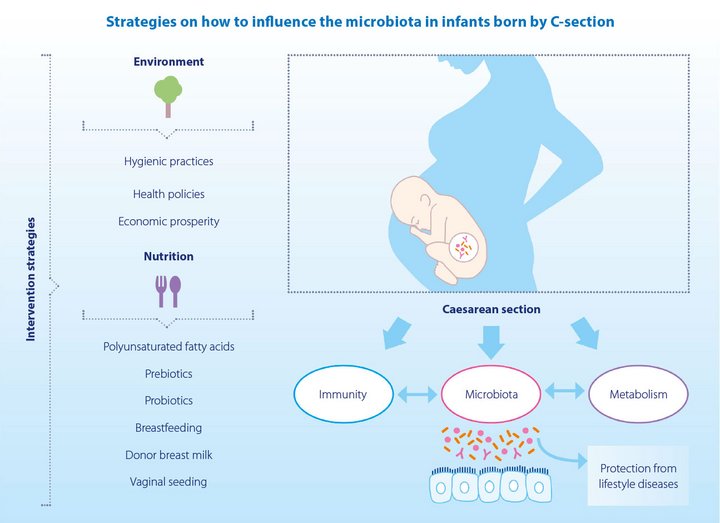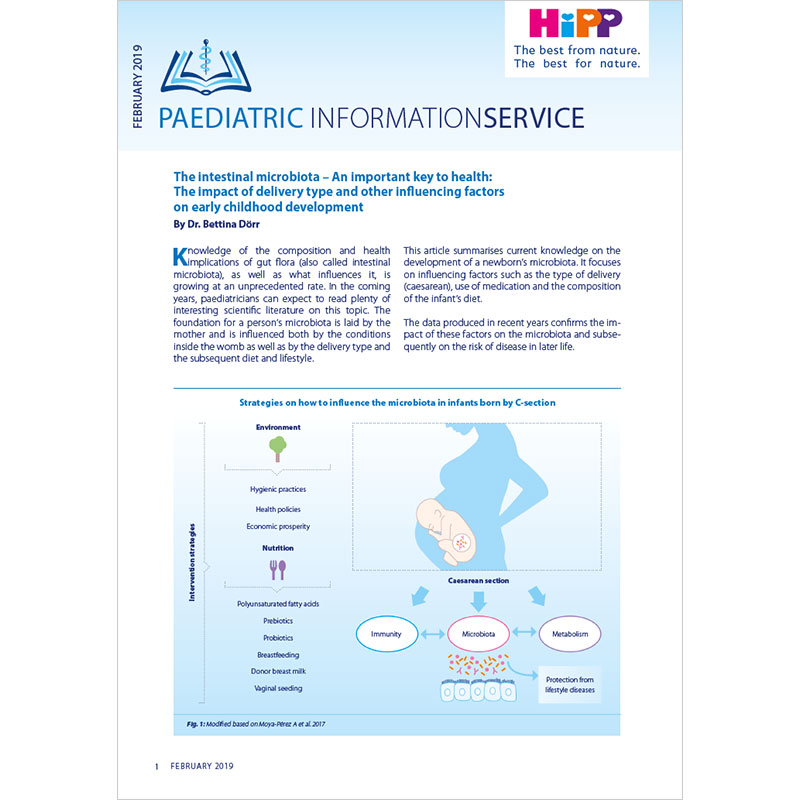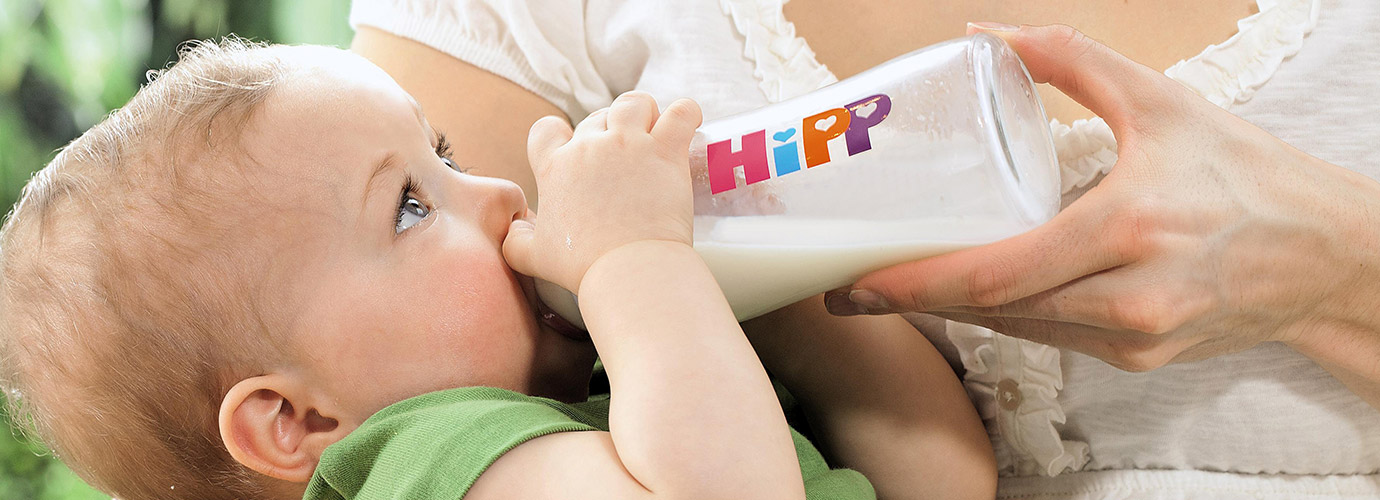Paediatric Information Service
The intestinal microbiota – An important key to health
The impact of delivery type and other influencing factors on early childhood development
The composition of microbiota at birth can be regarded as the important “control centre” when starting out in life. The foundation of the microbial composition is laid at the start of life by the maternal preconditions, the gestational age, the type of delivery and accompanying (medicinal) interventions. The microbiota is also subject to constant change and is influenced by many other factors such as nutrition, stress and genetic constitution.
1. An infant’s microbiota is significantly in¬fluenced by the type of delivery. In the case of a C-section, the lack of transferral of vaginal ¬ fluids to the infant is not the only influencing factor, as it is also in¬fluenced by accompanying medicinal interventions and the altered composition of the colostrum.
2. When compared to vaginal delivery, infants born by C-section have an altered microbiota and a delayed bacterial colonisation. One consequence under discussion in this context is the increased occurrence of various diseases. This is particularly the case for allergies, metabolic diseases such as diabetes and obesity, and increasingly also neurological disorders such as ADHD (attention deficit hyperactivity disorder).

3. “Vaginal seeding” can have a positive effect on infants born by C-section. This refers to a new approach whereby infants are “inoculated” with maternal vaginal ¬ fluids immediately after birth. Making this a routine procedure is, however, still the subject of some controversy within the scientific and medical community, and is not yet generally recommended.
4. Breastfeeding is still considered to be the bestoption for infant nutrition. Besides the “common” nutrients, breast milk also contains pre and probiotics, which are essential for the microbial colonisation of the small and large intestine.
5. In cases where breastfeeding is not possible, the use of infant formula containing pre- and probiotics is recommended. This way, the composition of breast milk can be imitated, with regard to substances which have been proven to be beneficial for healthy microbiota. This particularly applies to infants born by C-section, as they generally have a sub-optimal initial microbial colonisation.
6. Infants are what they “eat” – this is particularly true for the development of the microbiota, which is an essential foundation of a person’s short-term and long-term health status, and therefore also regarded as the mirror of nutrition.
Suitable HiPP info material



